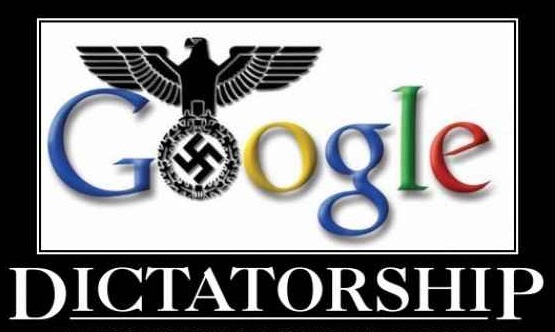Fake news begins with fake language
07/17/2019 / By News Editors

Human beings think with words. We express our thoughts with words.
(Article by Michael Cutler republished from FrontPageMag.com)
What truly differentiates humans from all other creatures is our ability to use language and preserve our thoughts in writing, thereby enabling us to pass down our knowledge from one generation to the next. This is why the study of history is so important, but it is not only history that is passed from generation to generation but knowledge in general.
We often say that “There is no need to reinvent the wheel.” Consider that if not for written language, each generation would, in effect, be forced to reinvent the wheel and all other forms of technology.
The study of history can help keep us from making the same tragic mistakes, but only if history is accurately written.
As George Orwell sagely observed, “Who controls the past controls the future. Who controls the present controls the past.”
The words that we use have real impact.
In 1974 an important psychological experiment was conducted that illustrated how altering words can not only have a significant impact on how the test subjects perceived the severity of a car crash but even ultimately impact how they remember the accident creating false memories.
The impact of word choice is not, however, limited to car accidents but applies virtually everywhere.
The report of that experiment Reconstruction of Automobile Destruction: An Example of the Interaction Between Language and Memory included this synopsis:
Two experiments are reported in which subjects viewed films of automobile accidents and then answered questions about events occurring in the films. The question, “About how fast were the cars going when they smashed into each other?” elicited higher estimates of speed than questions which used the verbs collided, bumped, contucted, or hit in place of smashed. On a retest one week later, those subjects who received the verb smashed were more likely to say “yes” to the question, “Did you see any broken glass?”, even though broken glass was not present in the film. These results are consistent with the view that the questions asked subsequent t o a n event can cause a reconstruction in one’s memory of that event.
Not long after that experiment the Carter administration ordered that INS (Immigration and Naturalization Service) employees stop using the term “illegal alien” to describe illegal aliens but use the term “undocumented immigrants.” There is no way to know if any one in the Carter administration had read the report I noted at the beginning of my commentary, but it certainly causes me to wonder if there is a connection.
In any event, years earlier George Orwell wrote an important novel, “1984,” that was required reading when I was a high school student, too many years ago. It must be considered “required reading” for all Americans today.
That novel about a fictitious totalitarian government included the creation of the ultimate form of propaganda known as “Newspeak” and an all-pervasive government known as “Big Brother.”
The “Ministry of Truth” was the arm of the government that administered Newspeak.
Today function of the Ministry of Truth is served by the Mainstream Media.
Though the internet, license plate readers, and a variety of other forms of surveillance, the control exerted by Big Brother in 1984 has been far surpassed by our society today.
I wrote about Newspeak and the efforts of those in political power as well as their allies in the mainstream media to alter public perceptions in my extensive article, Language Wars: The Road to Tyranny Is Paved with Language Censorship.
In that article I noted that:
A detailed explanation of Newspeak is found in this paragraph from the Appendix to Orwell’s novel, under the title , The Principles of Newspeak:
The purpose of Newspeak was not only to provide a medium of expression for the world-view and mental habits proper to the devotees of Ingsoc (English Socialist Party) but to make all other modes of thought impossible. It was intended that when Newspeak had been adopted once and for all and Oldspeak forgotten, a heretical thought — that is, a thought diverging from the principles of Ingsoc — should be literally unthinkable, at least so far as thought is dependent on words. Its vocabulary was so constructed as to give exact and often very subtle expression to every meaning that a Party member could properly wish to express, while excluding all other meanings and also the possibility of arriving at them by indirect methods. This was done partly by the invention of new words, but chiefly by eliminating undesirable words and by stripping such words as remained of unorthodox meanings, and so far as possible of all secondary meanings whatever. To give a single example. The word free still existed in Newspeak, but it could only be used in such statements as ‘This dog is free from lice’ or ‘This field is free from weeds’. It could not be used in its old sense of ‘politically free’ or ‘intellectually free’ since political and intellectual freedom no longer existed even as concepts, and were therefore of necessity nameless. Quite apart from the suppression of definitely heretical words, reduction of vocabulary was regarded as an end in itself, and no word that could be dispensed with was allowed to survive. Newspeak was designed not to extend but to diminish the range of thought, and this purpose was indirectly assisted by cutting the choice of words down to a minimum.
Today, deceptive language is frequently written off as simply being “politically correct” language designed to not insult anyone while, the truth is far more treacherous. The deceptive language is actually the manifestation of Orwellian Newspeak.
Read more at: FrontPageMag.com
Tagged Under: bias, brainwash, conspiracy, corporations, corruption, deception, fake language, fake news, knowledge, lies, mainstream media, propaganda
RECENT NEWS & ARTICLES
COPYRIGHT © 2017 SHEEPLE NEWS



















